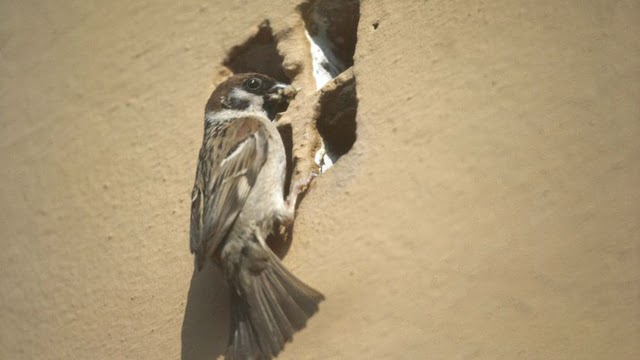Quck answer
A recent study has shown that urban birds are using cigarette butts to oust bugs from their nests. The chemicals in the cigarette butts are toxic to the parasites that try to invade the nests, making them a useful tool for the birds. This behavior has been observed in a variety of bird species around the world, highlighting the adaptability of urban wildlife. However, cigarette butt litter is also harmful to the environment and wildlife, and efforts should be made to properly dispose of them.
Wild Animals

House sparrows and finches in Mexico City have found a unique way to protect their nests from ticks and mites. They incorporate cigarette butts into their nests, which contain residual nicotine, an insecticide that repels these blood-sucking parasites. A study conducted at the National University of Mexico found that the more cigarette butts in the nest, the fewer ticks and mites. City-dwelling birds have limited access to natural nest-making materials, making cigarette butts a valuable resource.
Although there is some genetic damage linked to this activity, researchers believe that the positive anti-parasitic effects outweigh any potential long-term negative consequences. Not all bird species use cigarette butts, but the use of this material demonstrates urban wildlife adaptation.
A Dutch startup, Crowded Cities, has developed a device called the Crowbar that trains crows to collect cigarette butts and deposit them in a trash receptacle in exchange for food.
FAQ
1. What does the research about urban birds and bugs show?
The research shows that urban birds use cigarette butts to repel bugs and parasites that can harm them. Scientists have discovered that cigarette butts contain a substance called nicotine, which is a natural insecticide. When birds line their nests with cigarette butts, it can help to keep their young safe from harmful pests.
2. How do urban birds collect cigarette butts?
Urban birds are known to collect cigarette butts from sidewalks, parks, and other areas where people smoke. They use their beaks to pick up the cigarette butts and then carry them back to their nests. Some birds have even been observed stealing cigarette butts from ashtrays outside of buildings.
3. Is it harmful for birds to use cigarette butts in their nests?
While nicotine can be harmful to birds in large doses, the amount found in cigarette butts is not enough to cause harm. In fact, the nicotine in cigarette butts can actually help to repel harmful parasites and bugs that can be more harmful to birds. However, it is important to note that cigarette butts are still harmful to the environment and should be properly disposed of.
4. Do all urban birds use cigarette butts in their nests?
No, not all urban birds use cigarette butts in their nests. The research has mainly focused on two species of birds, the house sparrow and the finch. These birds are known to be adaptable and thrive in urban environments, which may be why they have developed this unique behavior.
5. Can urban birds use other materials to repel bugs?
While cigarette butts have been shown to be effective at repelling bugs, urban birds may also use other materials to achieve the same result. For example, some birds may use plants or herbs that contain natural insecticides, or they may use feathers or other materials that can help to repel pests.
6. What impact could this behavior have on the environment?
This behavior could have a positive impact on the environment by reducing the number of harmful pests and bugs in urban areas. However, it is important to note that cigarette butts are still harmful to the environment and should be properly disposed of. Additionally, this behavior may be a sign of the negative impact that humans have on the environment, as cigarette butts are a common form of litter in urban areas.
7. Can this behavior be harmful to other animals?
There is no evidence to suggest that this behavior is harmful to other animals. However, it is important to note that cigarette butts are harmful to the environment and can have negative effects on wildlife and ecosystems. It is important for humans to properly dispose of cigarette butts and other forms of litter to protect the environment and the animals that live in it.
8. What can be done to reduce the amount of cigarette litter in urban areas?
There are several things that can be done to reduce the amount of cigarette litter in urban areas. One solution is to create designated smoking areas with ashtrays to encourage smokers to properly dispose of their cigarette butts. Additionally, educational campaigns can be created to raise awareness about the harmful effects of cigarette litter on the environment. Finally, governments can implement policies and regulations to discourage littering and encourage proper waste disposal.





Leave a Reply